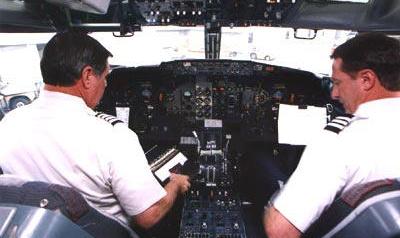
| NEWSROOM |
|
|
 |
|
|
|
|
|
|||
|
By |
||||
 |
February 26, 2010 - Southwest Airlines Pilots’ Association on Thursday
urged Senators to oppose attempts to punish, rather than protect, pilots
who voluntarily report errors through established safety programs –
including recent efforts to use “black box”
cockpit voice
recordings (CVR) as a way to enact discipline on pilots.
SWAPA joins fellow pilots from other airlines who oppose Senator Jim DeMint’s proposal to allow use of CVR data for disciplinary and punitive action against pilots. The NTSB has recommended that carriers be able to “routinely download and analyze all available sources of safety information, as part of their flight operational quality assurance program.” |
|||
|
However, the NTSB states specifically that the FAA should “provide
appropriate protections to ensure the confidentiality of the
de-identified aggregate data; and ensure that this information is
used for safety-related and not (emphasis added) punitive purposes.”
“The NTSB recommendation for CVR usage might be an honest attempt to promote safety,” SWAPA President, Capt. Carl Kuwitzky said, “but the DeMint proposal is a perfect example of a good intention to increase safety that has the exact opposite effect. This proposal and, unfortunately, the NTSB recommendation, are misdirected attempts at promoting safety that will surely backfire.” Southwest pilots fear the NTSB recommendation would jeopardize voluntary reporting program integrity that has been successful in increasing airline safety.
We agree that de-identified pilot reporting and aircraft data for
many years have been the basis of successful voluntary action
programs; Southwest pilots worked closely with the FAA and the
airline, helping to establish FAA’s Aviation Safety Action Program
(ASAP) and Flight Operational Quality Assurance (FOQA).
DeMint’s proposal is a prime example of how CVR data use could be
diverted from a safety-oriented idea to a punitive one. His proposal
would specifically empower the government and airline companies to
use CVR data for discipline purposes. Senator DeMint’s proposal
would simply provide a means to punish the entire piloting
profession for incidents such as the |
||||
|
|
| ©AvStop
Online Magazine
Contact
Us
Return To News
|
|